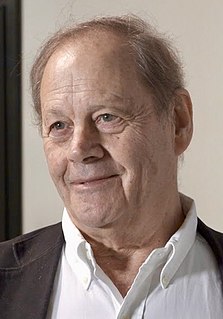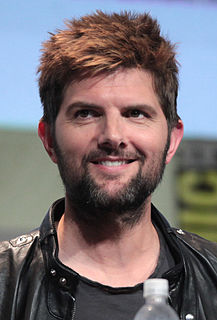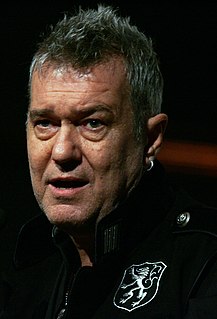A Quote by Bruce Beresford
On stage, the audience watches from a fixed viewpoint and the director cannot retake something he doesn't like. It has to work straight through.
Related Quotes
You don't fully understand the meaning of a work until the audience responds to it. Because the audience completes the circle, and adds a whole other shade of meaning. Whenever you view something, and this is why great works of art survive decades and centuries, is because there's a door within the work that allows the audience to walk through and complete the meaning of the work. An audience isn't passive, nor are they unintelligent.
You see, what is my purpose of performance artist is to stage certain difficulties and stage the fear the primordial fear of pain, of dying, all of which we have in our lives, and then stage them in front of audience and go through them and tell the audience, 'I'm your mirror; if I can do this in my life, you can do it in yours.'
You see, what is my purpose of performance artist is to stage certain difficulties and stage the fear the primordial fear of pain, of dying, all of which we have in our lives, and then stage them in front of audience and go through them and tell the audience, I'm your mirror; if I can do this in my life, you can do it in yours.
You're in a movie, so you have to think about how something plays. It's not like you're thinking about how an audience is going to react. You're trying to present the story. You're trying to illuminate the lives of these people in the story. So I'm thinking about how my behavior as this character best illuminates what's going on with them in this moment in time. I always say it's sort of the director's job. People think that the directors direct actors. No. Really, what the director's doing is directing the audience's eye through the film.
There's something about the energy and the expectations that an audience projects at you. I get up on stage and work and work, and there's chaos all around me, then I'll shut my eyes, and boom! I slot into the zone. It's like the eye of the hurricane. Everything is easy, and I'm capable of doing things I didn't know I was.
I like what a third man brings. A kind of oblique vision, seeing something in the material that you didn't know was there. As a comedian, I'm always listening to the audience. And in movies, sometimes the only audience you have is the producer and the director. I like having someone else's opinion, especially if you're on the same wavelength.




































